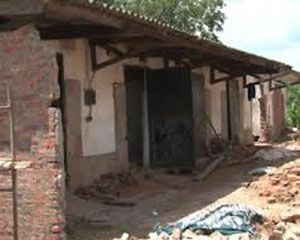
Just when the country was returning to its sanity after the death of five people following an explosion in Chitungwiza another blast has just killed three people in Mount Hampden just outside Harare.
The Standard Editorial
The earlier blast had put the minds of the nation on fire as it seemed impossible to explain. Responsible authorities were late in releasing preliminary results resulting in all sorts of theories being thrown about to explain it. The explanations ranged from the hilarious to the truly bizarre.
It turned out, according to experts, the blast was a result of an explosive device from which the victims were trying to extract a fabled chemical. Myths have been flying around that bombs contain a substance that can be sold on the black market making instant riches for the leaders.
Experts have said the substance, which these pedlars of lies call red mercury, doesn’t exist and people should know that bombs are made to explode and kill people.
This is a basic truth which common sense should dictate. Only trained people can defuse bombs and even when they do so, they don’t do it in residential areas because it is a dangerous enterprise.
The second blast need not have happened at all. The making of boilers and how they function is the subject of rudimentary science — something every pupil learns in Form One Science lessons. The dangers are well known and again only trained boilermakers have any business minding boilers or repairing them.
But a lot of Zimbabweans believe in shortcuts, whether these are to riches as in the Chitungwiza case or to workmanship, as in the Mt Hampden case. Zimbabweans have coined a name for it — kukiyakiya.
- Chamisa under fire over US$120K donation
- Mavhunga puts DeMbare into Chibuku quarterfinals
- Pension funds bet on Cabora Bassa oilfields
- Councils defy govt fire tender directive
Keep Reading
This has grossly compromised occupational safety and health. Gone are the days when workplaces were constant subjects of inspection; when workers’ qualifications for certain jobs were constantly monitored. Many businesspeople only see the importance of such inspections when tragedy occurs and compensation is required.
Employers and work places — especially on the newly-acquired farms and factories — need to be monitored because the tendency is to engage the cheapest labour with very tragic results.











